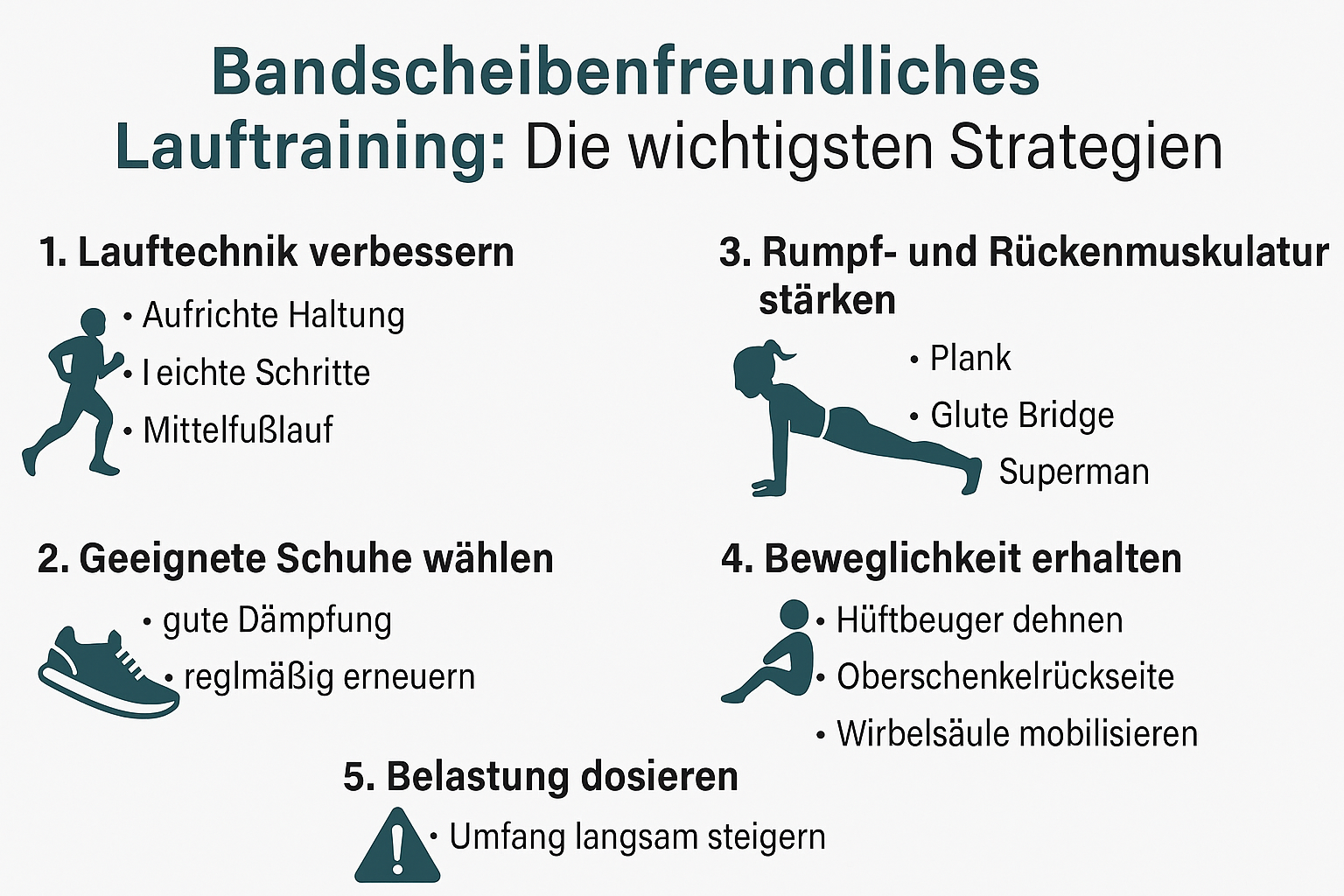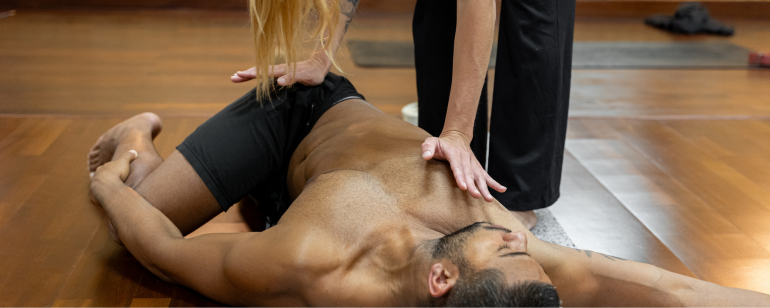Running is considered one of the easiest and most effective sports. It strengthens the heart and circulation, improves endurance and promotes general well-being. Nevertheless, many runners complain of back pain or tense muscles after training. This often affects the intervertebral discs, which have to absorb shocks with every step.
A conscious approach is required to ensure that training does not become a burden, but rather strengthens the back. Technique, equipment, additional training and regeneration are crucial.
Why the intervertebral discs are strained when running
The intervertebral discs act like small shock absorbers between the vertebrae. When walking, they cushion movements, but when running, the load is multiplied. Each step can transfer two to three times the body weight to the spine.
If the surrounding muscles are weak or lack stability, the intervertebral discs quickly reach their limits. Typical consequences are tension, back pain or an overload reaction.

Running technique is the key
A clean running technique is the basis for intervertebral disc-friendly training.
- Upright posture: The upper body remains stable and the gaze is directed forwards. This distributes the load evenly.
- Light steps: The harder the impact, the greater the shock load. Short, springy steps reduce the pressure.
- Midfoot running: If you touch down via the heel, you transfer high forces to your spine and joints. Running on the midfoot or forefoot is much gentler.
The right footwear
Running shoes are not a detail, but a decisive factor.
- Cushioning: Shoes with good cushioning reduce shocks.
- Individual fitting: The choice depends on running style, body weight and surface. A running analysis in a specialist store is recommended.
- Regular replacement: Worn shoes lose their protective function. They should be replaced after 800-1000 km at the latest.
Strengthen your core and back muscles
The spine is dependent on active stabilization. Strong abdominal and back muscles act like a protective shield for the intervertebral discs.
Recommended exercises:
- Plank: Strengthens the abdomen, back and shoulders.
- Glute Bridge: Strengthens the buttocks and lumbar spine.
- Superman: Activates the deep back muscles.
Just 10-15 minutes of targeted training, two to three times a week, will bring noticeable improvements.
Maintain mobility
In addition to strength, the back needs flexibility. Shortened muscles increase the pressure on the intervertebral discs.
Important stretching exercises:
- Hip flexors: Relieves the lower back.
- Back of the thigh: Improves hip mobility.
- Cat’s hump horseback: Mobilizes the entire spine.
Stretching should be done regularly, preferably after training or on rest days.

Dosing the load
Many problems are caused by increasing the training volume too quickly. The spine and its structures need time to adapt.
- Increase the amount of walking by a maximum of 10% per week
- Variety between longer runs, intervals and regeneration
- Sufficient sleep and breaks for regeneration
Take warning signals seriously
Persistent or increasing pain is a warning sign. If you react early, you can prevent chronic complaints. A physiotherapeutic examination can help to identify and treat incorrect posture, muscular weaknesses or technical errors.
Conclusion
Intervertebral disc-friendly running is not a question of doing without, but of having the right strategy. With good technique, a stable core, suitable shoes and targeted training, you can relieve your intervertebral discs and avoid back pain. If you know your body, pay attention to signals and seek physiotherapy when in doubt, you will benefit twice over: less discomfort and more enjoyment from running.
